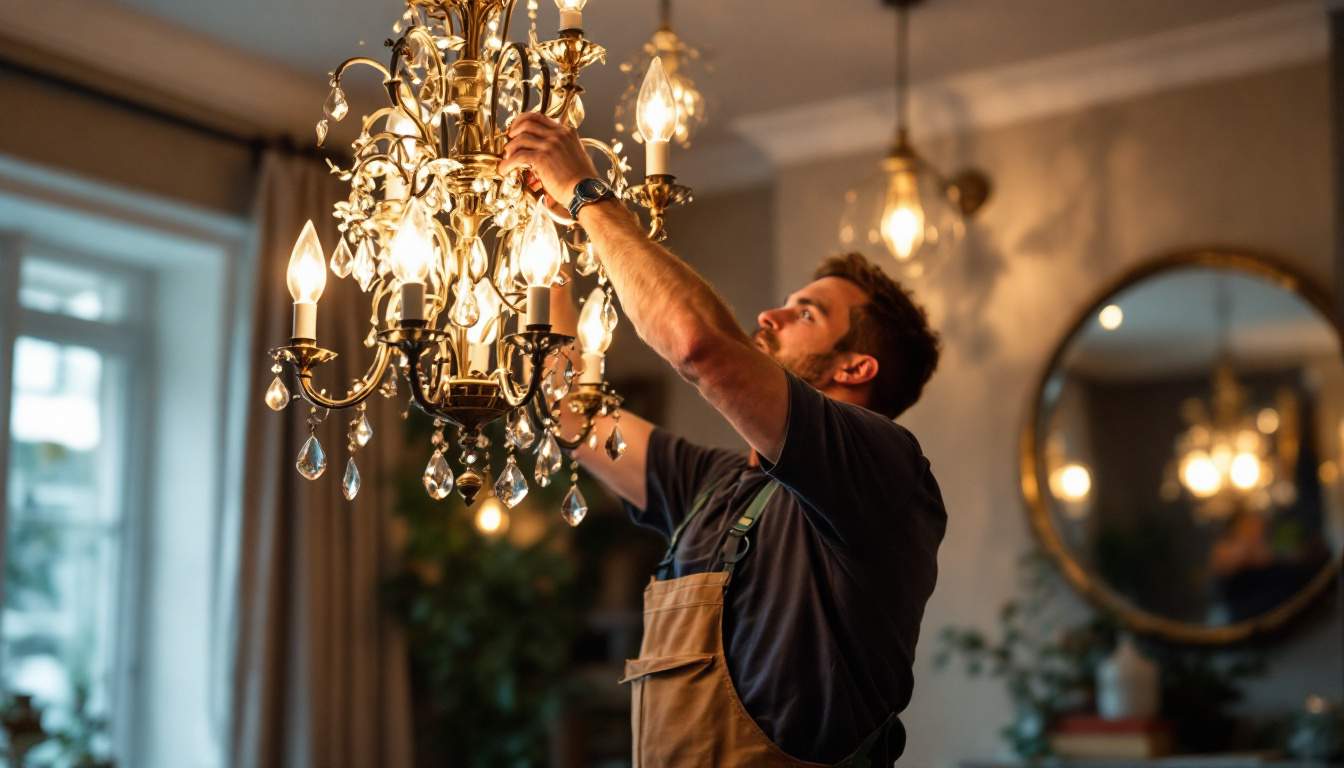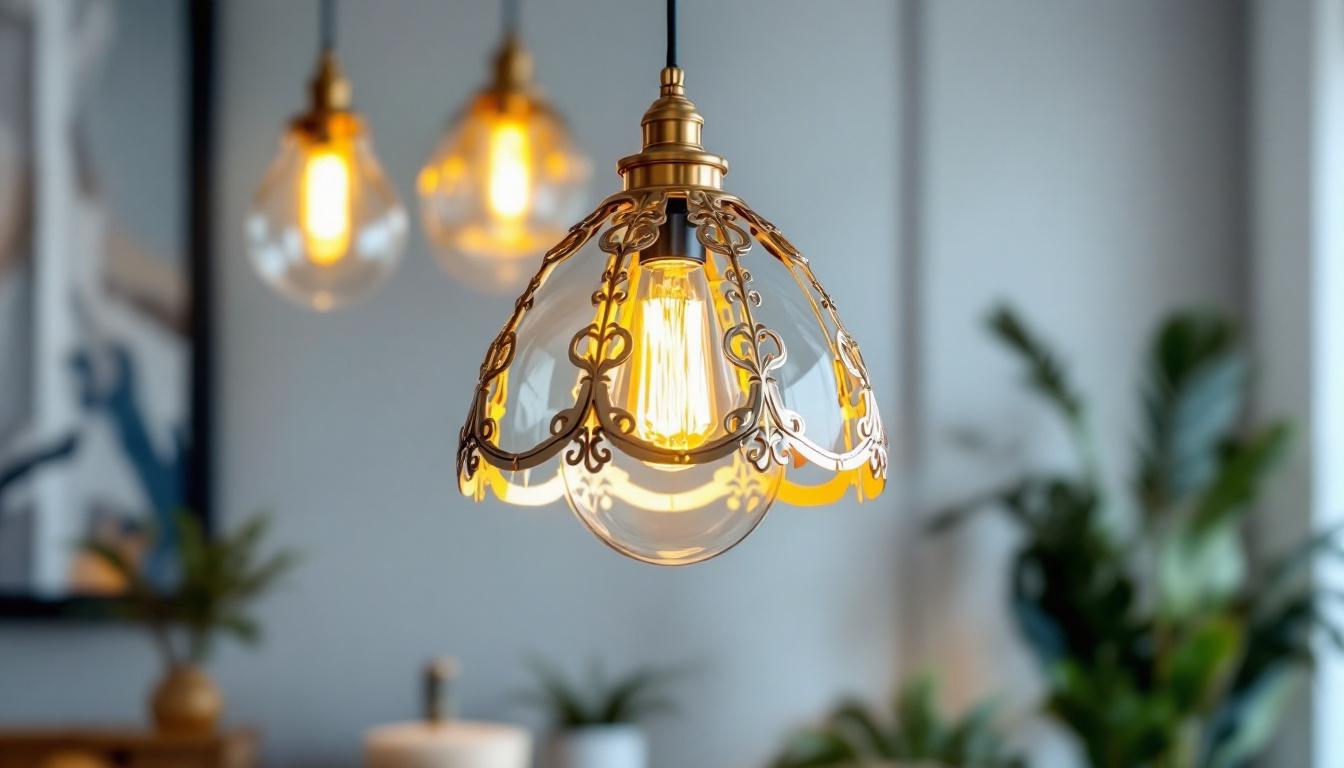
In the ever-evolving world of lighting design and installation, having the right tools is crucial for lighting contractors. Whether working on residential projects, commercial spaces, or large-scale installations, the tools used can significantly impact efficiency, quality, and safety. This article explores essential tools that every lighting contractor should have in their light shop, ensuring they are well-equipped to tackle any job with confidence.
Hand tools form the backbone of any contractor’s toolkit. They are essential for a variety of tasks, from installation to maintenance. Here are some of the most important hand tools that should be included in every lighting contractor’s light shop.
Wire strippers and cutters are indispensable for any lighting installation. These tools allow contractors to easily strip insulation from electrical wires, ensuring clean connections for fixtures and other components. Quality wire strippers can also accommodate various wire gauges, making them versatile for different projects.
Investing in a good pair of wire cutters is equally important. They should be sharp and durable, enabling precise cuts without fraying the wire. This precision is vital for maintaining the integrity of electrical connections and ensuring safety during installations. Additionally, some advanced wire strippers come equipped with built-in crimping tools, allowing contractors to complete multiple tasks with a single tool, which can save both time and effort on the job site.
A comprehensive set of screwdrivers and nut drivers is essential for assembling and securing lighting fixtures. Different types of screws and nuts are used in various installations, so having a range of sizes and types will make the job easier. Magnetic tips on screwdrivers can also be a handy feature, preventing dropped screws and speeding up the installation process.
Consider investing in a multi-bit screwdriver, which can save space and provide versatility. This tool allows contractors to switch between different bits quickly, making it easier to adapt to the specific needs of each project. Furthermore, ergonomic handles can enhance comfort during prolonged use, reducing fatigue and improving efficiency, especially in larger installations where multiple fixtures need to be secured.
Accurate measurements and level installations are critical in lighting projects. A reliable level ensures that fixtures are installed straight and aligned correctly, enhancing the overall aesthetic of the space. Laser levels can also be beneficial, as they provide a clear visual guide for positioning lights, especially in larger areas.
Alongside levels, measuring tapes are essential for determining distances and ensuring that fixtures are spaced appropriately. A tape measure with both metric and imperial units can be particularly useful, catering to various project requirements. In addition, digital measuring tools are becoming increasingly popular among contractors for their accuracy and ease of use. These devices can quickly calculate distances and even store measurements for future reference, making them a valuable addition to any toolkit. Furthermore, combining traditional measuring tools with digital options can streamline the workflow, allowing for quick adjustments and ensuring that every installation meets the highest standards of precision.
While hand tools are essential, power tools can significantly enhance efficiency and precision in lighting installations. These tools can save time and effort, allowing contractors to focus on the finer details of their work.
Drills are among the most versatile power tools in a lighting contractor’s arsenal. They are essential for creating holes for mounting fixtures, running wires, and securing components. A cordless drill is particularly advantageous, providing mobility without the hassle of cords.
Impact drivers complement drills by providing additional torque for driving screws. This is especially useful when working with tougher materials or when securing heavy fixtures. Having both tools on hand allows for a more efficient workflow, reducing the time spent on installations.
Rotary tools are incredibly versatile and can be used for a variety of tasks, including cutting, grinding, and polishing. For lighting contractors, these tools are invaluable when working with different materials, such as metal or plastic. They can be used to create custom fixtures or modify existing ones, allowing for greater creativity in design.
When selecting a rotary tool, consider one that offers variable speed settings. This feature allows for better control over the tool, making it easier to adapt to different materials and tasks.
Good lighting is essential for any installation project. portable work lights provide illumination in dark spaces, ensuring that contractors can see what they are doing and work safely. These lights come in various forms, including LED options that offer bright, energy-efficient lighting.
Look for work lights that are durable and have adjustable brightness settings. This flexibility allows contractors to adapt the lighting to different environments, whether they are working indoors or outdoors.
Safety is paramount in any electrical work, and having the right testing equipment is essential for ensuring that installations are safe and compliant with regulations. Here are some key pieces of electrical testing equipment that every lighting contractor should have.
Multimeters are essential for measuring voltage, current, and resistance in electrical circuits. They help contractors diagnose issues and ensure that installations are functioning correctly. A good multimeter should be easy to use and provide accurate readings.
Look for models that offer a range of features, such as data logging and auto-ranging capabilities. These additional functions can enhance the usability of the multimeter, making it a valuable tool for troubleshooting and maintenance.
Voltage testers are vital for ensuring that circuits are safe to work on. These tools can quickly determine whether a wire is live, helping to prevent electrical shocks during installations. Non-contact voltage testers are particularly useful, as they allow contractors to check for voltage without making direct contact with wires.
Having a reliable voltage tester on hand can provide peace of mind, ensuring that safety is prioritized during every project.
In addition to basic and power tools, specialized lighting tools can enhance the capabilities of lighting contractors. These tools are designed specifically for tasks related to lighting design and installation.
Tools designed specifically for fixture installation can streamline the process and improve accuracy. For example, fixture mounting brackets and templates can help ensure that lights are positioned correctly and securely. These tools can save time during installation and help achieve a professional finish.
Additionally, consider investing in tools that assist with adjusting and aiming fixtures. Tools that allow for precise angling of lights can enhance the overall effectiveness of the lighting design, ensuring that spaces are illuminated as intended.
Effective cable management is crucial for both safety and aesthetics in lighting installations. Cable ties, clips, and conduits can help organize and secure wires, preventing tangling and damage. A well-organized installation not only looks better but also reduces the risk of electrical hazards.
Investing in high-quality cable management solutions can save time during installations and make future maintenance easier. Properly managed cables also contribute to the longevity of the lighting system, reducing wear and tear on components.
Working with electrical systems comes with inherent risks, making safety gear an essential part of any lighting contractor’s toolkit. Proper safety equipment protects contractors from potential hazards on the job site.
Personal protective equipment, such as gloves, safety glasses, and hard hats, should be standard for any lighting contractor. Gloves protect hands from cuts and abrasions, while safety glasses shield eyes from debris and bright lights. Hard hats are crucial for protecting against falling objects, especially when working in commercial spaces or on construction sites.
Investing in high-quality PPE can enhance safety and comfort, allowing contractors to focus on their work without unnecessary distractions.
Having a well-stocked first aid kit on hand is essential for any contractor. Accidents can happen, and being prepared can make a significant difference in emergency situations. A comprehensive first aid kit should include bandages, antiseptics, and other medical supplies to address common injuries.
Regularly checking and replenishing the first aid kit ensures that it is always ready for use. This proactive approach not only promotes safety but also demonstrates professionalism on the job site.
Keeping tools organized is vital for maintaining efficiency on the job. An organized workspace allows contractors to find tools quickly, reducing downtime and improving productivity.
Investing in high-quality toolboxes and storage solutions can make a significant difference in how tools are managed. Toolboxes with compartments allow for easy organization of smaller items, while larger storage solutions can accommodate power tools and equipment.
Consider portable storage options that can be easily transported to job sites. This flexibility allows contractors to bring only the tools they need, minimizing clutter and maximizing efficiency.
Implementing an inventory management system can help contractors keep track of tools and materials. This system can be as simple as a spreadsheet or as advanced as specialized software. An organized inventory ensures that tools are accounted for, reducing the risk of loss and enabling better planning for future projects.
Regularly reviewing inventory can also help identify tools that need maintenance or replacement, ensuring that contractors are always equipped with reliable equipment.
For lighting contractors, having the right tools is essential for success. From basic hand tools to specialized lighting equipment, each tool plays a crucial role in ensuring efficient, safe, and high-quality installations. Investing in quality tools not only enhances productivity but also contributes to the overall professionalism of the contractor’s work.
By equipping a light shop with the essential tools outlined in this article, lighting contractors can tackle any project with confidence, creativity, and efficiency. As the industry continues to evolve, staying updated on the latest tools and technologies will further enhance the capabilities of lighting professionals, ensuring they remain at the forefront of their field.
Ready to elevate your lighting projects to the next level? At LumenWholesale, we’re committed to providing you with the highest quality, spec-grade lighting products at prices that make sense for your business. Say goodbye to local distributor markups and hello to our extensive selection that meets rigorous industry standards. With free shipping on bulk orders, you can stock your light shop with the essential tools and fixtures needed for any job, ensuring efficiency, safety, and excellence. Don’t compromise on quality or value—Wholesale Lighting at the Best Value is just a click away.

Discover how lighting contractors can enhance their business by embracing the art and science of chandelier installations.

Discover essential insights for lighting contractors on selecting and installing gold and silver pendant lights.

Discover essential insights for lighting contractors in our comprehensive guide to landscape lighting.

Discover the insider tips and expert techniques lighting contractors use to masterfully install LED under cabinet spotlights.